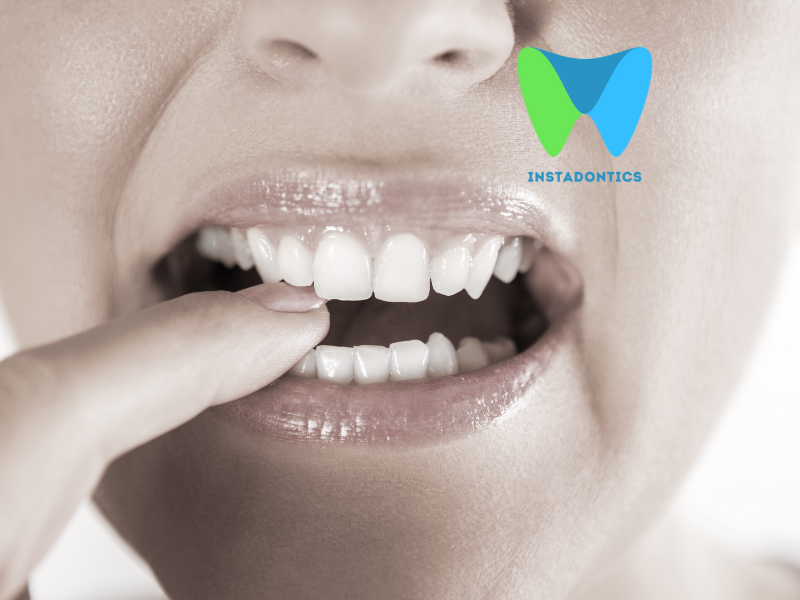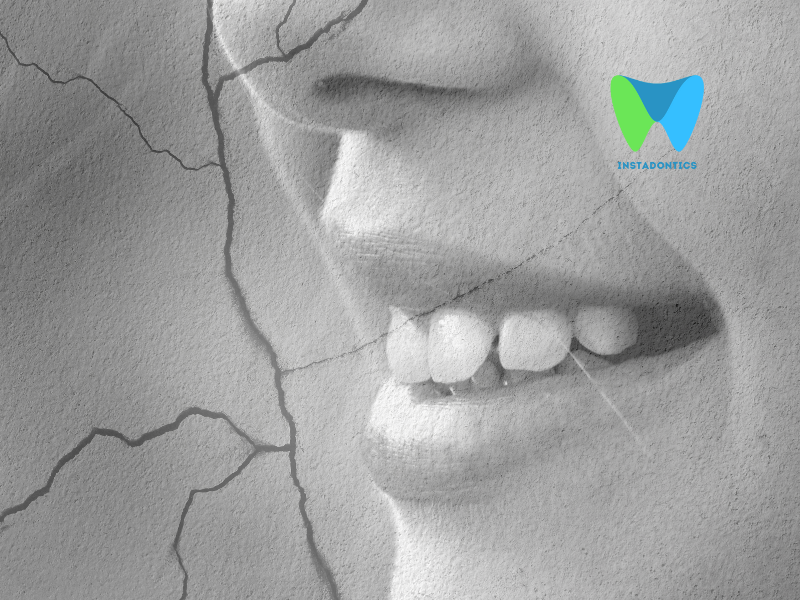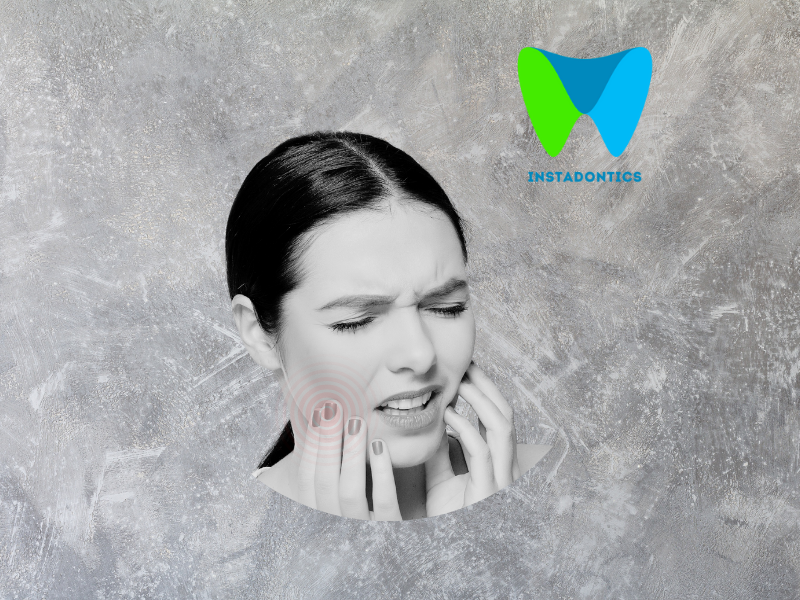Why Do My Teeth Hurt at Night | Many individuals experience discomfort from tooth pain during nighttime hours, prompting the question of why this occurs. Several factors contribute to increased tooth sensitivity at night, including cavities, teeth grinding, and the impact of sleeping positions on tooth pressure. As distractions diminish, the pain often becomes more noticeable when trying to relax or sleep.
Potential reasons for nighttime tooth pain range from common dental issues, such as cavities and infections, to lifestyle habits like grinding teeth. Additionally, the body’s natural response to pain and inflammation can intensify discomfort when one is at rest. Understanding these underlying causes can equip individuals with the knowledge needed to seek appropriate relief and treatment.
This article will explore the various reasons why teeth may ache at night, providing insights and tips for those seeking answers and solutions to their nighttime turmoil.
Why Do My Teeth Hurt at Night?
Understanding Tooth Pain
Tooth pain, particularly at night, can stem from various physiological and external factors. Exploring the underlying anatomy and common triggers provides insight into the discomfort experienced.
Tooth pain arises from several structures within and around the tooth. The dentin, a layer beneath the enamel, contains tiny nerve endings that can transmit pain signals. This sensitivity is heightened when the enamel is compromised, such as through decay or erosion.
Another critical structure is the pulp, which houses nerves and blood vessels. Inflammation or infection in the pulp can lead to severe pain, especially noticeable at night. Additionally, surrounding tissues, including gums and bone, can reflect pain from dental issues. Understanding these components helps in identifying the source of discomfort.
Common Causes of Nocturnal Toothache
Numerous factors can contribute to tooth pain at night. Some common causes include:
- Tooth Decay: Cavities expose sensitive dentin, leading to increased pain.
- Gum Disease: Inflammation can cause soreness and sensitivity.
- Cracked Teeth: A fracture may not be felt during the day but can throb at night.
- Wisdom Teeth Issues: Impacted or erupting wisdom teeth can generate pressure and pain.
Bruxism, or teeth grinding, can also worsen pain during the night. The constant pressure leads to discomfort in the jaw and teeth, making it more pronounced at night. Identifying these causes can help in determining appropriate treatments and relief methods.
Why Do My Teeth Hurt at Night?
Checklist and Tips to Identify The Cause
Nighttime tooth pain can sometimes be a symptom of underlying health issues. Identifying these connections can help in managing discomfort effectively. Experiencing tooth pain at night can be distressing and disrupt your sleep. Understanding the underlying cause is crucial for finding relief. Here are common causes of nighttime tooth pain and tips to help you pinpoint the issue:
1. Teeth Grinding (Bruxism)
Bruxism, or teeth grinding, is a common issue that can lead to significant discomfort at night. Many individuals are unaware they grind their teeth during sleep, yet the consequences can include various dental and health problems.
- Cause: Grinding or clenching teeth during sleep puts pressure on teeth and jaw muscles, leading to pain.
- Recognizing the signs of bruxism is crucial. Individuals may observe:
- Worn Tooth Enamel: Continuous grinding can wear down enamel, exposing sensitive layers of teeth.
- Tooth Pain: Sudden or severe toothaches that worsen at night can indicate grinding.
- Jaw Discomfort: Tired or tight jaw muscles or a locked jaw may suggest bruxism.
Tips to Identify:
- Wake up with jaw soreness or headaches.
- Check for wear on teeth or a clicking jaw joint.
- Consult a dentist for signs of bruxism.
- To confirm bruxism, dental professionals may perform examinations to assess wear patterns on teeth and gather patient history.
Managing Bruxism
- Effective management of bruxism involves several strategies:
- Mouthguards: Custom-fitted mouthguards can protect teeth during sleep.
- Stress Reduction: Engaging in relaxation techniques, such as meditation or yoga, may help alleviate stress-related grinding.
- Dental Check-ups: Regular visits to the dentist can help monitor tooth wear and prevent further damage.
- Addressing underlying issues like anxiety might also reduce grinding frequency. With proper care, individuals can mitigate the impact of bruxism on their oral health.
2. Tooth Decay or Cavities
- Cause: Cavities expose nerves, causing pain, especially when lying down.
- Tips to Identify:
- Look for visible holes or dark spots on teeth.
- Sensitivity to hot, cold, or sweet foods.
- Persistent, localized pain in one area.
3. Gum Disease (Gingivitis or Periodontitis)
- Cause: Inflamed or infected gums can cause discomfort that worsens at night.
- Tips to Identify:
- Red, swollen, or bleeding gums.
- Loose teeth or receding gum lines.
- Bad breath that doesn’t improve with brushing.
4. Sinus Infections
- Sinus problems, such as sinusitis or sinus infections, can lead to tooth pain. The upper teeth roots are close to the sinus cavities. When these cavities become inflamed or congested, pressure can be felt in the teeth, particularly the molars.
- Cause: Pressure from a sinus infection can radiate pain to upper teeth.
- Individuals experiencing tooth pain alongside these symptoms should consider consulting with a healthcare provider. Treating the sinus issue can alleviate the associated tooth pain.
- Tips to Identify:
- Pain in upper molars that coincides with sinus pressure or a cold.
- Congestion or nasal discharge.
- Relief when sinuses are cleared.
- Symptoms may include:
- Facial pain or pressure
- Nasal congestion
- Headaches
5. Tooth Sensitivity
- Cause: Exposed dentin from enamel erosion or receding gums can cause pain.
- Tips to Identify:
- Discomfort triggered by temperature changes.
- Sharp pain when eating acidic or sweet foods.
- Pain subsides quickly after the trigger is removed.
6. Impacted Wisdom Teeth
- Cause: Wisdom teeth that don’t fully erupt can press against surrounding teeth, causing pain.
- Tips to Identify:
- Pain in the back of the jaw.
- Swelling or tenderness around wisdom teeth.
- Difficulty opening the mouth.
7. Abscessed Tooth
Cause: A bacterial infection at the root of a tooth causes intense, throbbing pain.
- Tips to Identify:
- Severe, localized pain that may spread to the ear or neck.
- Swelling in the gums or face.
- Fever or foul-tasting fluid in the mouth.
8. Orthodontic Appliances
- Cause: Braces, retainers, or other dental devices can cause temporary discomfort.
- Tips to Identify:
- Pain concentrated near orthodontic adjustments.
- Soreness after tightening braces.
- Check for irritation caused by the appliance.
9. Poor Sleeping Position
- Cause: Lying flat increases blood flow to the head, intensifying pain signals.
- Tips to Identify:
- Pain diminishes when sitting or elevating the head.
- No visible dental issues, but persistent nighttime discomfort.
10. Dry Mouth (Xerostomia)
- Cause: Reduced saliva production at night leads to irritation and bacterial growth.
- Tips to Identify:
- Waking up with a dry, sticky feeling in the mouth.
- Frequent thirst or bad breath.
- Use of medications linked to dry mouth.
11. Temporomandibular Joint Disorders
Temporomandibular joint (TMJ) disorders can also cause significant discomfort at night. TMJ disorders affect the jaw joint, leading to pain that may radiate to the teeth.
Common indicators include:
- Jaw pain or tenderness
- Clicking or popping sounds in the jaw
- Headaches
People with TMJ disorders might clench their jaws or grind their teeth at night, exacerbating tooth pain. Addressing TMJ issues often involves relaxation techniques, dental splints, or professional treatment for lasting relief.
Managment & Prevention
Maintaining dental health plays a crucial role in preventing nighttime tooth pain. Professional dental care can address underlying issues and reduce the likelihood of pain during the night. Regular visits and preventive measures are essential.
Lifestyle Factors
Certain lifestyle factors can significantly influence the occurrence of nighttime tooth pain. Key elements such as dietary habits and oral hygiene practices play a critical role in minimizing discomfort and promoting dental health.
Dietary Habits
Dietary choices greatly impact dental health and can contribute to tooth pain, especially at night. High sugar intake is particularly concerning, as it feeds harmful bacteria that can lead to tooth decay and cavities.
Foods to avoid include:
- Candy and sugary snacks
- Sugary drinks
- Refined carbohydrates
Eating these items, especially before bedtime, may exacerbate pain due to increased plaque buildup. Additionally, acidic foods can erode enamel, making teeth more sensitive.
On the other hand, incorporating foods rich in calcium, phosphorus, and vitamins can support tooth health. Foods like dairy products, leafy greens, and nuts help strengthen teeth, potentially reducing pain at night.
Oral Hygiene Practices
Effective oral hygiene is crucial in preventing nighttime tooth pain. Regular brushing and flossing help remove food particles and plaque, reducing the risk of decay and gum disease.
To maintain oral hygiene, individuals should:
- Brush twice daily with fluoride toothpaste
- Floss daily to remove debris between teeth
- Use mouthwash for an extra level of protection
Failing to adhere to these practices can lead to discomfort that becomes more pronounced at night. Inadequate care can allow bacteria to thrive, leading to infections or abscesses that cause increased pain.
Regular dental check-ups are also vital. Professional cleanings and assessments can help identify and address potential problems before they escalate into severe pain.
Routine Dental Check-Ups
Routine dental check-ups are vital for identifying potential problems that may lead to nighttime discomfort. During these appointments, a dentist examines the teeth for signs of decay, gum disease, or other issues. These check-ups typically occur every six months, allowing for early intervention.
Key benefits include:
- Early detection of cavities and decay
- Monitoring for signs of gum disease
- Professional cleaning to remove plaque and tartar
If any issues are found, the dentist can recommend a treatment plan to prevent further problems, helping to keep nighttime pain at bay.
Preventive Dental Treatments
Preventive dental treatments provide additional protection against nighttime tooth pain and other dental issues. Common preventive measures include sealants, fluoride treatments, and mouthguards.
Treatments include:
- Sealants: These are protective coatings applied to the chewing surfaces of molars, hindering decay.
- Fluoride Treatments: Professional fluoride applications strengthen tooth enamel, reducing vulnerability to cavities.
- Mouthguards: For individuals who grind their teeth at night, custom-fitted mouthguards can alleviate pressure on teeth and jaw joints.
Next Steps
- Keep a Pain Diary: Note when the pain occurs, its intensity, and any triggers.
- Schedule a Dental Visit: A professional exam can identify the root cause.
- Try Over-the-Counter Relief: Use pain relievers or desensitizing toothpaste as needed.
- Adjust Your Sleeping Position: Elevate your head to reduce blood flow to the area.
- Wear a Nightguard: Protect teeth from grinding if bruxism is suspected.
Understanding the cause of your nighttime tooth pain can help you seek the right treatment and get back to restful sleep. By committing to preventive care, individuals can significantly reduce the risk of nighttime tooth pain, leading to better overall dental health.



